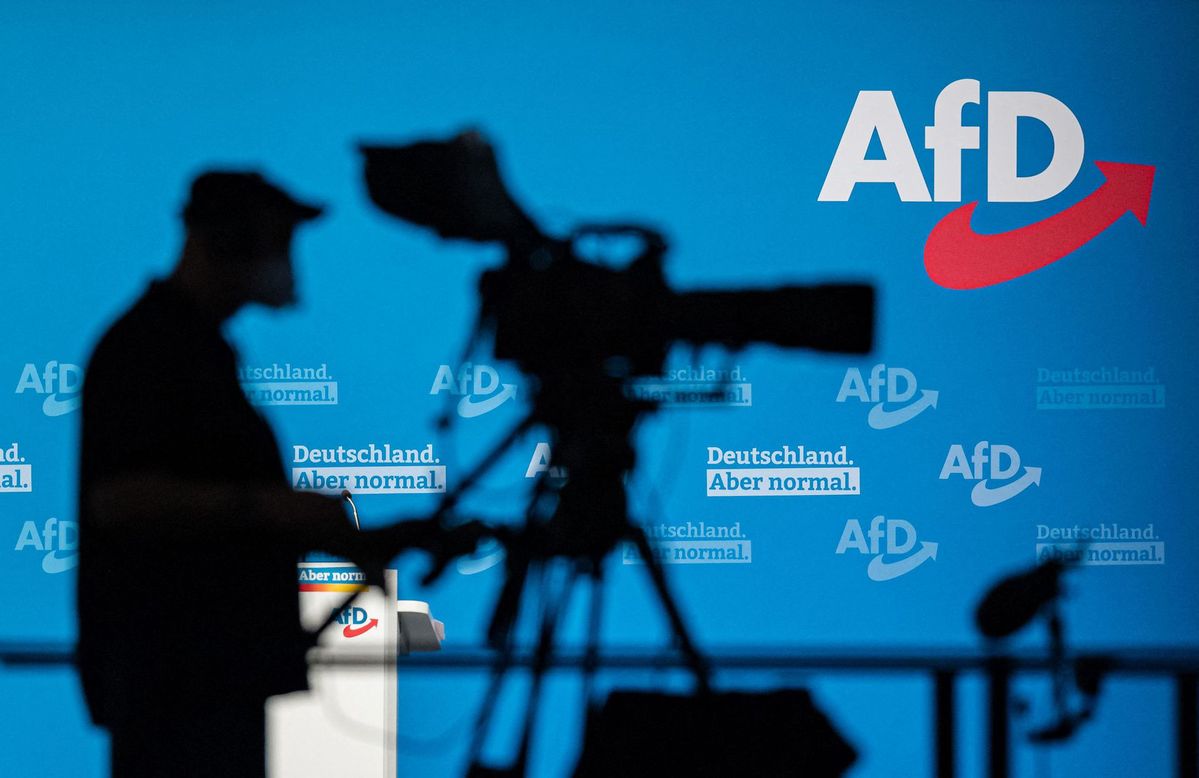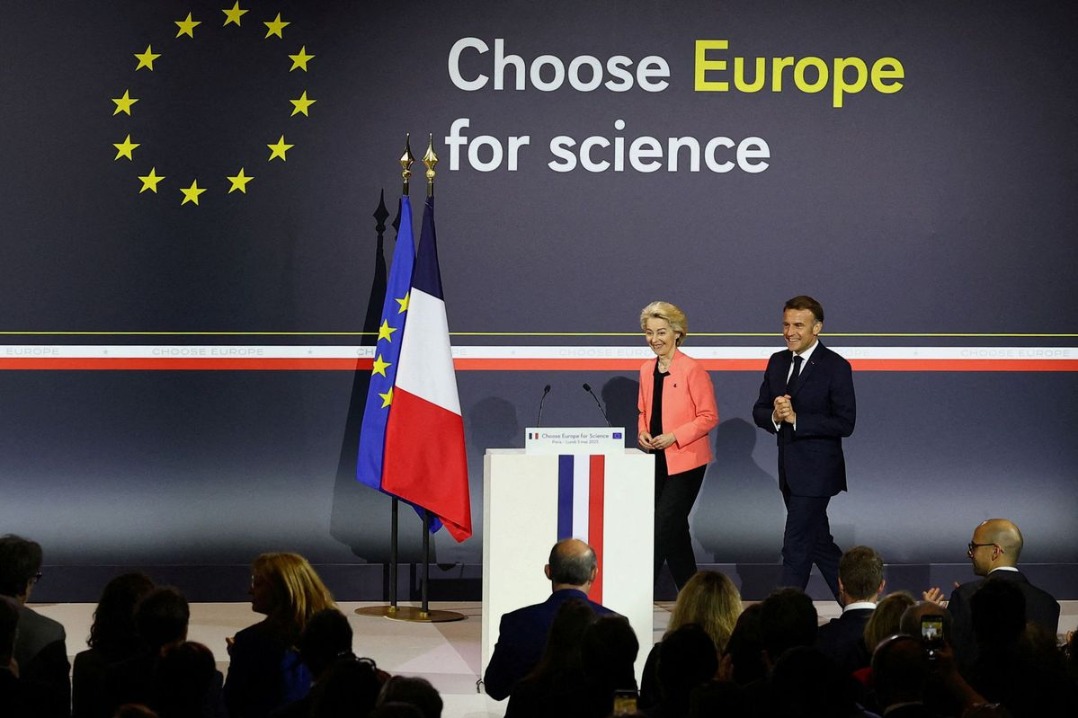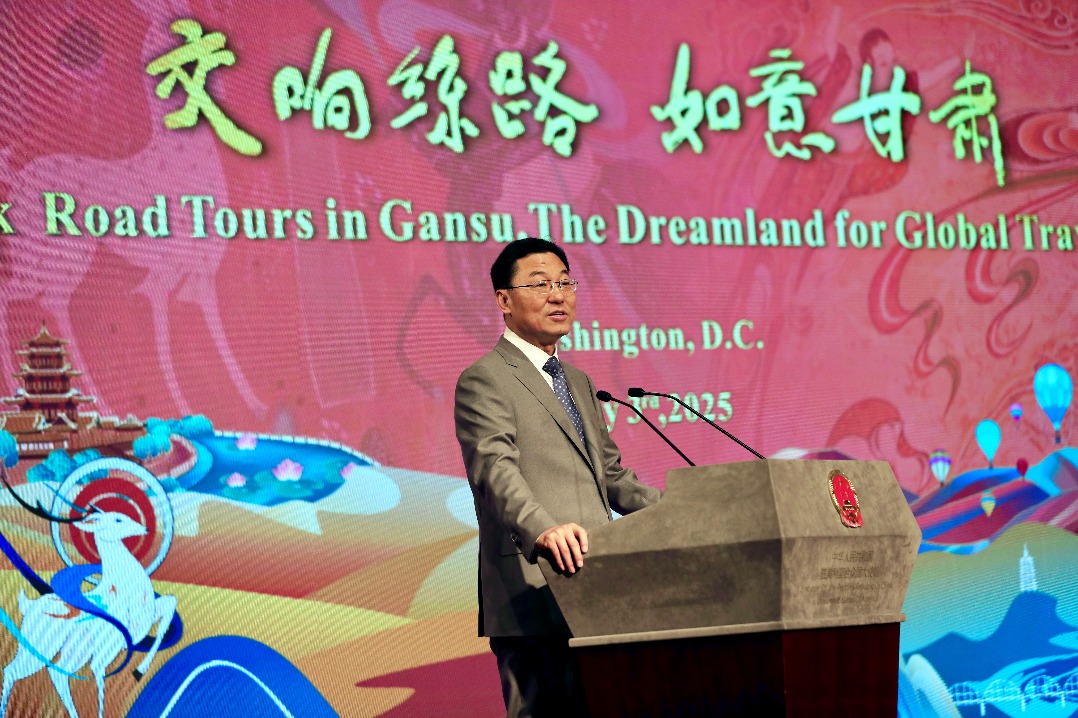Germany's far-right hits back at 'extremist' label


The far-right Alternative for Germany, or AfD, the second-largest party in the country's parliament, the Bundestag, has begun legal proceedings against Germany's domestic intelligence agency after it labeled the populist anti-immigrant party an extremist organization.
In a statement issued last week, it said the AfD, which won 20.8 percent of votes in February's election, behind the winning Christian Democratic Union-Christian Social Union, or CDU-CSU, which took 28.6 percent, "aims to exclude certain population groups from equal participation in society".
Specifically, the statement went on to say, that it did not consider citizens "from predominantly Muslim countries" as equal members of the German nation.
A spokesman for the AfD told the AFP that the party had lodged a court challenge against the designation on Monday.
Earlier in the year, United States President Donald Trump's close associate Elon Musk held an online livestreamed discussion with Alice Weidel, co-chair of the AfD, urging people to vote for the AfD, and she also met US Vice-President JD Vance in the run-up to February's election.
US Secretary of State Marco Rubio called the redesignation of the party, which means it could face greater monitoring through techniques such as telephone interception and the use of undercover agents, "tyranny in disguise".
But Germany's Federal Foreign Office hit back on social media, saying it was "democracy", and that the decision was "the result of a thorough and independent investigation to protect our constitution and the rule of law … we have learned from our history that right-wing extremism needs to be stopped".
There have even been suggestions that the AfD, whose support is mainly in the territories of the former East Germany, should be banned, which party leaders said would be a "blow against democracy", and an attempt to disfranchise the millions of people who voted for it this year.
According to a survey conducted by the polling institute INSA for the newspaper Bild am Sonntag from Friday to Saturday, 61 percent of the 1,001 surveyed people agreed with the categorization of the AfD as a "confirmed right-wing extremist endeavor", with 48 percent supporting a ban.
Germany's center-left Social Democrats leader Lars Klingbeil, who will be finance minister in the new coalition government, took a cautious approach to the prospect of an outright ban. "I'm not interested in producing quick headlines from this assessment," he told the newspaper Bild, in response to the extremist designation. "But if the authorities at some point issue a clear mandate to act, then the political sphere must evaluate that carefully."
Mika Beuster, federal chair of the German Journalists' Association, said the new status should be considered during news coverage.
"Of course we must continue reporting on the AfD," he said. "But it is not a normal party within the democratic spectrum. It requires an adapted approach."

































